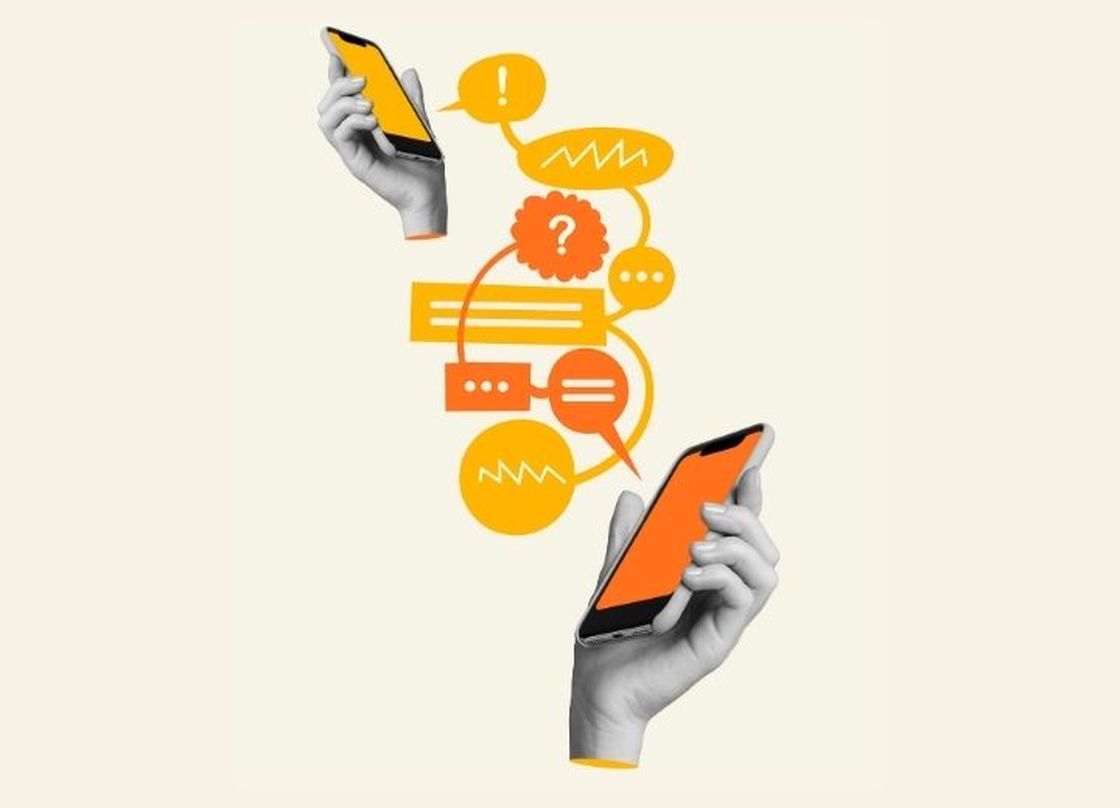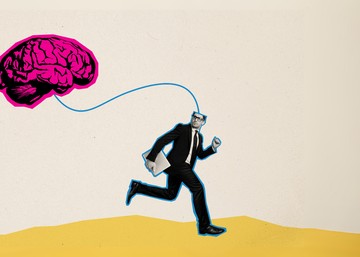

Lately, I am seeing and hearing more conversation about people needing to feel seen and heard. I’m happy about that, because I think seeing and hearing people is a crucial business and life skill at which most of us don’t excel. That’s confirmed by a recent episode of my favorite podcast, Hidden Brain, called “The Price of Disconnection.” It’s definitely worth a listen and a read of the highlights below, because this skill is so crucial to what we do as human-centered marketers. Whether you’re in healthcare marketing, other B2C marketing or B2B marketing, it’s about how you make people feel. As discussed in this podcast, helping them feel seen and heard will get you better results.
Being seen and heard is “dispiritingly rare” and something we humans crave
In the episode, host Shankar Vedantam interviews Johns Hopkins sociologist Allison Pugh about “Why and how to cultivate the superpower of helping people feel seen.” In setting the stage, Vedantam notes: “As we go about our days, we don’t feel seen and heard. We feel ignored and passed over. All of us want to be seen for the unique individuals we are. Yet the experience of being seen this way can be dispiritingly rare.”
Raise your hand if you agree with those statements. (*Raises both hands in the air and waves them around wildly*)
Pugh, author of The Last Human Job: The Work of Connecting in a Disconnected World, talks about how she found in her work doing in-depth interviews with people that they would often say that it was “like therapy” just to have someone listen to them.
“Allison started to see that the act of really noticing another person, paying attention to them, being present for them, this was not something that was nice to have. It was something that people craved.”Shankar Vedantam - Hidden Brain
Seeing and hearing others is an essential part of how people do their jobs, across many occupations, including therapists, teachers, primary care physicians, community organizers, funeral home directors, home health care aides, police, lawyers, judges and more. Pugh calls this “Connective Labor,” and explains how people like sales people and teachers, for example, are less successful at achieving their desired outcomes if they are not really seeing and hearing their prospects or students. Certainly, human-centered marketing is Connective Labor; we must all see and hear our audiences in order to successfully build connections with them. And this is extremely true for our healthcare partners.
“Seeing” patients impacts the quality of healthcare
Vedantum and Pugh discuss what this all means in a healthcare setting and the high degree to which patients need to feel seen and heard by their healthcare providers. (This insight, which we originally gleaned from patient interviews, was the basis of the successful Be seen. Be heard. Be healed. brand campaign that we created with TriHealth.)
Pugh speaks about an interview she did with a pediatrician in which that physician noted that what her patients needed most was an hour with a good listener. She also shares her personal experience with a physician who did a quick evaluation, saw some elevated numbers, and told her to eat fewer cookies, oblivious to the fact that she is a committed athlete with good eating habits. (Most likely, you have had an equally dismissive and disconnected healthcare experience; I know I have.)
The impact, according to Pugh, is that when treated this way, people are less likely to follow the medical advice given. “When you’re not seen, it can really dissuade you from following good advice, because you don’t hear the good advice. You don’t feel that it’s relevant to you or it doesn’t feel like it recognizes the particularities of your situation.”
Now contrast that with this example: Pugh tells the story of a hospital chaplain who encountered an intubated patient who was seething with anger that no one else had addressed. She (truly) saw the patient, handed him a box of tissues, and told him to throw it at the wall to help release his anger. Later, that patient remarked that “There is nothing like being in the worst moment of your life and you feel like someone understands you.”
“There’s a lot of research that talks about how being seen by one’s doctor leads to better health outcomes, and leads directly to patient well being.”Allison Pugh - Hidden Brain
How to make a powerful emotional impact by seeing and hearing people
People that Pugh interviewed shared that “when they connected with other people, magical things seemed to happen.” Seeing an individual — really seeing them ‚— has a huge impact. According to Pugh: “The emotional impact of being seen (is that) people feel like they have dignity. People feel like they have understanding. People feel like they have purpose. You’re saying to the other person, ‘You are a person of value. You have humanity just like I do."
So, how do we get better at seeing people? Pugh’s advice is to set aside assumptions and expectations to pause and deeply listen — not only to what a person is saying, but what they are not saying.
“What I think is really important is actually hearing what the other person is not saying. Hearing the emotion that they’re not naming. If you can hear an emotion behind what someone is saying is very powerful for people. If they didn’t say it and you name it, they will feel very seen.”Allison Pugh - Hidden Brain
She goes on to recommend creating a workplace culture in which people are seeing others. “A really warm, competent leader can make an enormous difference, in part by catalyzing this kind of magic.”
What does all of this mean for advertising? Can an ad campaign help a person feel seen?
I asked our Associate Creative Director, Izzy Sliker, this question; here is her response:
“At its best, advertising is all about creating rapport with others. The goal is to make a first impression or an experience that stands out in people’s minds as a special moment. And when we think about those moments in our own lives, we know they’re the rare times that someone else holds a mirror up to us, acknowledging our challenges or aspirations, and offers what they can to help us be our best.

Many organizations try to win over customers by touting the very functional benefits of their product or service — all the rational things that make sense on paper. But the magic of marketing depends on becoming that mirror. You really can’t communicate benefits in a way that cuts through the noise until you get to know your audience’s inner world and mindset: their goals, their fears, the language they use, the places they linger and the future they want to see.
Today, we’re hyperconnected online, yet by many accounts we’re more solitary and lonelier than ever. So many of our interactions have become transactional — prioritizing efficiency and convenience, the superficial things we want right now in this moment rather than what our heart needs to feel whole and alive and valued.
It’s not only possible for ad campaigns to help people feel seen; empathy, intimacy and humanity are the keys to bold, truly breakthrough communications that hold a memorable presence in our minds. It’s akin to the difference you feel getting a party favor versus a gift someone has picked out just for you.”


